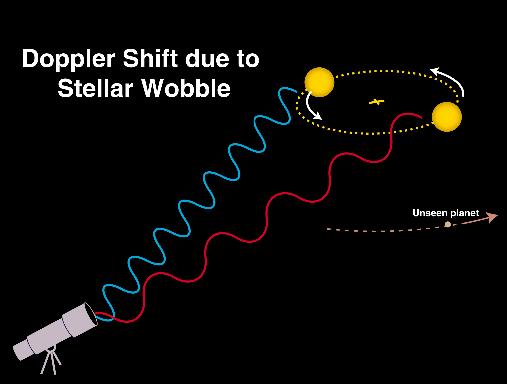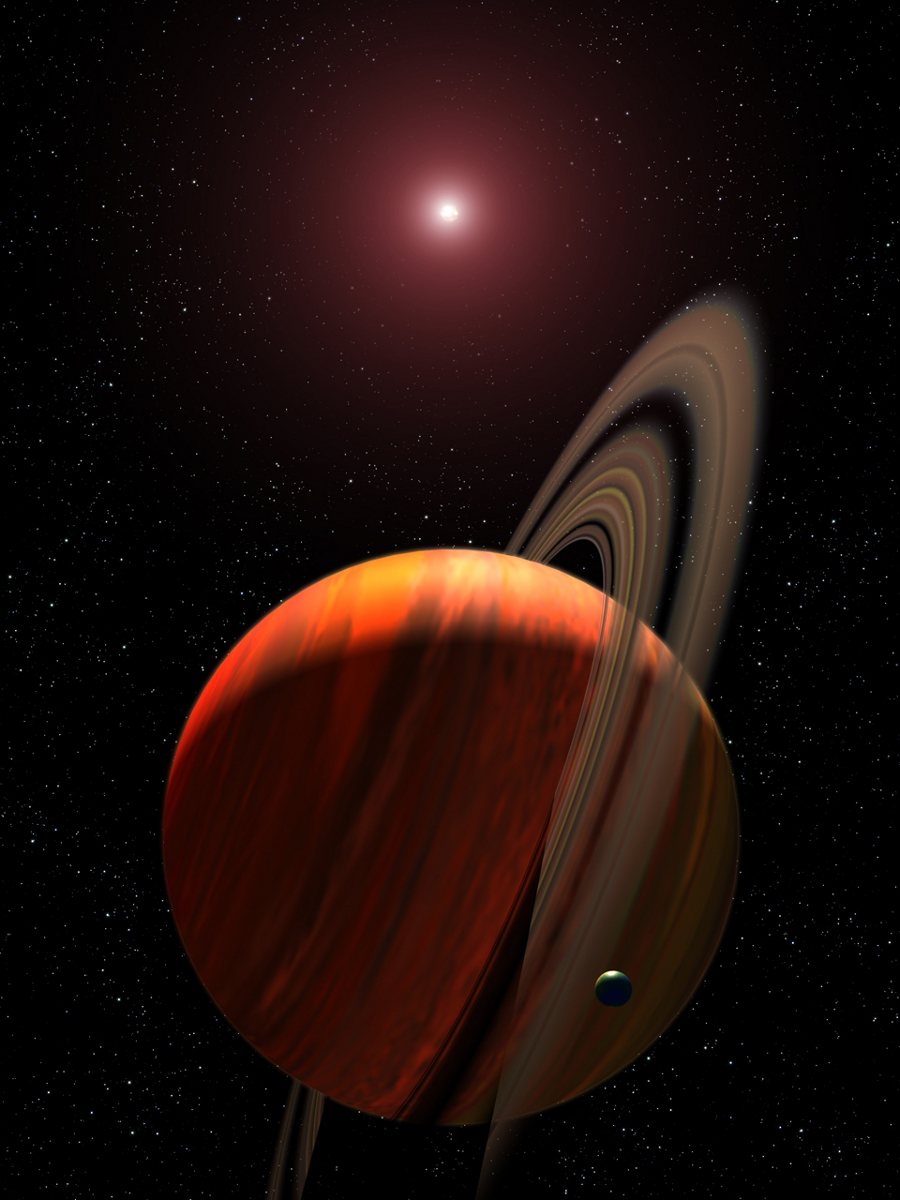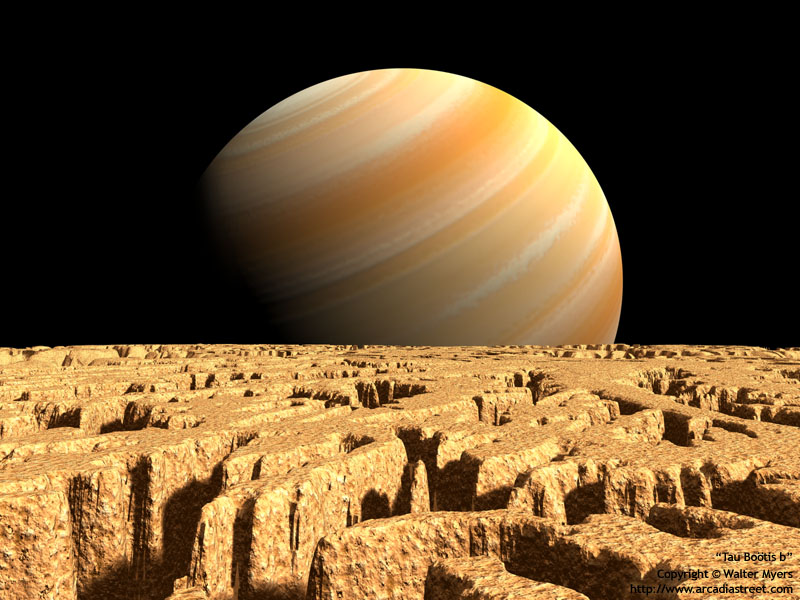|
Extra Solar Planets New Planets Discovered |
|
|
..
within the habitable zone of an unknown star Extra Solar
Planets
The first confirmed discovery of extrasolar planets (planets around another star - also called exoplanets) occured in 1992. Radio astronomers Aleksander Wolszczan and Dale Frail announced the discovery of planets around a pulsar. In 1995, Michel Mayor and Didier Queloz of the University of Geneva announced the first definitive detection of an exoplanet orbiting an ordinary main-sequence star (51 Pegasi). This discovery was made at the Observatoire de Haute-Provence and ushered in the modern era of exoplanetary discovery. Technological advances allowed astronomers to detect exoplanets indirectly by determining their gravitational influence on the motion of their parent stars. The planets are usually discovered by measuring the change in Doppler shift of the star's light, resulting from the star orbiting a common center of mass with a companion planet.  Several extrasolar planets were detected by observing the variation in a star's apparent luminosity as a planet passed or transited in front of it. The occasional transit of Venus across the sun is an example from our own Solar System. At the end of 2007, a little over 220 exoplanets had been discovered around stars near the sun. Most of them are huge and hot gas planets (similar or larger in mass to Saturn or Jupiter) orbiting very close to their sun. Given the current early stage in planet searching technology, this preponderance of giant planet discoveries in close solar orbit should not be surprising. These would be the most noticeable planetary bodies given the degree of sensitivity of the available instruments. As sensitivity increases in the future and new methodologies become common, the average range in planet distance from the parent star should increase and the average observed planet size should decrease. Astronomers have recently discovered that terrestrial planets might form around many, if not most, of the nearby sun-like stars in our galaxy. SOURCE: http://www.visions2200.com/SpaceExtraSolarPrime.html |
|
|
Artwork by John Whatmough ..
Upon an Earth sized rocky moon
of HD 28185, safe beneath a nitrogen atmosphere
and a strong magnetic field
and nurtured by temperate oceans of liquid
water, life flourishes. Although
mere speculation, the existence of a living moon
such as this one is almost
guaranteed somewhere in the galaxy.Credit: Copyright
©
by John Whatmough
John Whatmough's artwork has been used in many publications to depict an artist's concept of the current discoveries of extra solar planets. Extrasolar Visions images have appeared in Nova, Astronomy Magazine, Scientific American, and others. Visit his website here - The Image Portfolio |
|
Related Links:
NASA JPL Kepler |
|
|
|
|
AUSTRALIAN BROADCASTING CORPORATION:
|
|
|
Artwork by Walter Myers ..
The extrasolar planet Tau Boötes
b reigns over the airless, baked and battered
terrain of a hypothetical
moon. Tau Boötes b orbits very close to Tau
Boötes, a type F7V
star about 50 light years from the Earth. Tau
Boötes b is believed
to have about four times the mass of the planet
Jupiter and orbits around
its sun at the astonishing pace of once every
3.3 days.
Credit:
Copyright ©
Walter
Myers. All rights reserved.
Visit Walter Myers's website here - Extrasolar Planets Discovered |
|
| FAIR USE NOTICE: This page contains copyrighted material the use of which has not been specifically authorized by the copyright owner. Pegasus Research Consortium distributes this material without profit to those who have expressed a prior interest in receiving the included information for research and educational purposes. We believe this constitutes a fair use of any such copyrighted material as provided for in 17 U.S.C § 107. If you wish to use copyrighted material from this site for purposes of your own that go beyond fair use, you must obtain permission from the copyright owner. | |
|
|




